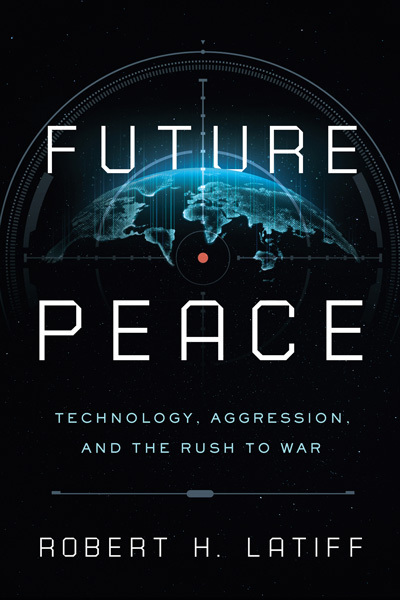
Amid a devastating war in Ukraine that has already claimed thousands of lives and forced nearly 2 million Ukrainians to become refugees, retired Maj. Gen. Robert Latiff, an adjunct professor at the John J. Reilly Center for Science, Technology and Values at the University of Notre Dame, offers context and advice on modern warfare and how to “step back from the brink” of war in his book “Future Peace: Technology, Aggression, and the Rush to War.” Published by University of Notre Dame Press, it is a sequel to his 2017 book, “Future War: Preparing for the New Global Battlefield.”
He found that his first volume surfaced many unanswered questions, particularly about the justification of war, known as “jus ad bellum” in Latin. In “Future Peace,” Latiff, who received his doctorate and M.S. in materials science and his bachelor’s degree in physics from Notre Dame, questions our overreliance on technology.
“Unlike the past, today’s weapons are too complex to understand even by those who employ them,” he wrote. “More concerning still is the fact that modern weapons and the decisions to use them are increasingly computer controlled, with human decision-making receding into the background and being replaced by automation. Unproven technologies incorporating artificial intelligence and autonomous behavior are being rushed into weapons and decision aids.”
He noted that the public has been led to believe that technology will make wars easier to fight, but that is untrue. “Worse yet, those same new technologies that so enthrall us may actually increase the chances of war.”
Latiff also examines the pressure-cooker scenario created by the growing animosity between the U.S. and its adversaries. He points out the sheer amount of time and resources the U.S. spent on fighting the global war on terror while other countries reimagined their own military might.
“Following the attacks of 9/11, we spent more than a decade focusing almost solely on the global war on terror,” Latiff wrote. “During that time, China, Russia, and others who had seen our amazing technological superiority in Kuwait and Iraq in the First Gulf War and who had seen the U.S. use of overwhelming force in the invasion of Iraq in 2003 determined that they would not want to be dominated in such a way by the U.S. in the future. While we chased terrorists, China and Russia aggressively modernized their military forces and equipment.”
He also addresses the U.S.’s globally deployed and thinly stretched military, writing, “Nonstop deployments are taking an enormous toll on our soldiers, sailors, airmen, and Marines. Our special operations forces, in particular, are being stretched to the breaking point. The tempo of operations and the lack of downtime increase the incidence of mistakes, some deadly.”
Because the American public is intentionally kept unaware of many troop deployments and other military actions and the wars the country is involved in are geographically far, many people have become “fairly blasé” about conflicts, Latiff said. He cites lack of civics education (prompted by education funding cuts) in high schools and a sort of closed-circuit conversation between high-level experts as some of the reasons many in the U.S. remain uneducated about the military and its actions. He calls for more experienced practitioners to be involved in teaching the next generation of leaders, and he asks the American public to demand answers from Congress.
“If they are uninterested, then Congress will be equally uninterested in reining in their profligacy or putting a check on the executive. Perhaps if the public had an understanding of the real costs of and reasons for war, there might be more resistance to U.S. involvement in numerous conflicts.”
Latiff teaches a popular course at Notre Dame called The Ethics of Emerging Weapons Technologies, which he believes is filling undergraduates’ unmet need for information on the topics of war and peace. He writes that young people are “vitally interested in questions of ethics and morality.”
Young and old from around the world are watching in horror as some of the consequences of war Latiff outlines in the book are illustrated as Russian President Vladimir Putin carries out his brutal assault on Ukraine.
“If the unprovoked attack on Ukraine has taught us anything, it is that massive stocks of armaments and new high-tech weapons embolden autocrats and invite their own use and that, sadly, it is innocent non-combatants who suffer most as a result,” he said. “Civilized countries can do better.”
The book was the focus of Latiff's research when he served as a faculty fellow at the Notre Dame Institute for Advanced Study during the 2019-2020 academic year. It is available now, and the John J. Reilly Center and the Notre Dame International Security Center will co-host a book launch from 4:30 to 6:30 p.m. April 11 (Monday) at Foley’s in O’Neill Hall at Notre Dame. The event is free and open to the public. For more information, click here.
